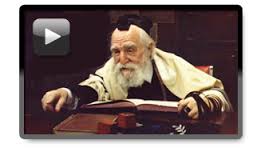“We have seen that mathematical propositions which cannot be established by formal deduction from a given set of axioms may, nevertheless, be established by “informal” meta-mathematical reasoning. It would be irresponsible to claim that these formally indemonstrable truths established by meta-mathematical arguments are based on nothing better than bare appeals to intuition.” (Ernest Nagel, Godel’s Proof, p. 112)
David Zviel:
Godel actually constructs formal statements which must be true but can not be proved using the axioms of the system. Worse yet he shows that if you go ahead and add the true statement as a new axiom, then Godel can construct another statement which must be true and can not be proved with the (new, extended) axioms of the system. So in fact there is an infinite regress, and you can never have a system (as complex as arithmetic or more complex) which is both consistent (does not have both “X” and “NOT X” as true statements) and complete (all true statements can be proven).
According to the books — the one you are using and the one that I am reading — Godel was telling us that there are truths which are TRUE but can not be proven. “There are more things in Heaven and on Earth, Horatio, than are dreamt of in your philosophy“, so to speak.
The brilliance of Godel is the way in which he forced the mathematical reader to accept that the statement MUST BE TRUE yet CAN NOT BE PROVEN.
Here is your best point — “Both for the mathematician and for the posek intuition is used to find the truth to be proven [whether or not there is actually a “proof”]. The problem is that in mathematics — in Godel’s proof — you are looking at consistent systems in which you cannot prove both of the following:
X
not X
whereas in Halacha, in many cases, different poskim can come to opposite conclusions.
GP: If you study Rav Moshe and Rav Avraham Ben HaRambam, Psak is not a mechanical process. There is some sort of intuitive process at play here. The term “play” is used very deliberately, but it is “play” in a realm of high level analysis. The Posek works over the sources and evaluates the particular circumstances at hand – sort of like a soup – and the Psak is the result. Of course, in many if not most cases, we have the Psak written out by the Posek – and we can study his reasoning process. But clearly the Posek is not mechanically applying a set of Axioms or Rules –
To say it again: the connection to Godel’s Proof is simply to point this out that the Posek does not get to his answer by a process of mechanical reasoning. However, whereas Godel says that there are true statements that cannot be proved, the Posek documents his reasoning process in a written Tshuva, citing major sources and previous authorities.
We are describing a psychological process of thought, both for the Mathematician and for the Posek. The difference being that we, the Jews, hold that the Posek operates in an entirely different realm of human and G-dly thought based on the following possuk:
מִזְמוֹר לְאָסָף אֱלֹהִים נִצָּב בַּעֲדַת אֵל בְּקֶרֶב אֱלֹהִים יִשְׁפֹּט:
תהלים פרק פב) ה
***************************************************************8
Click Here for The Intuitive Factor in Psak (Hebrew)
Click Here for Roger Penrose and C.I. Lewis


